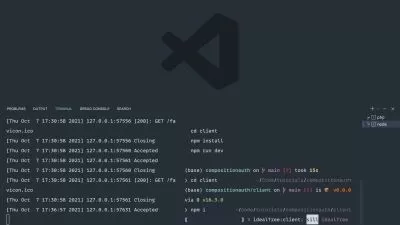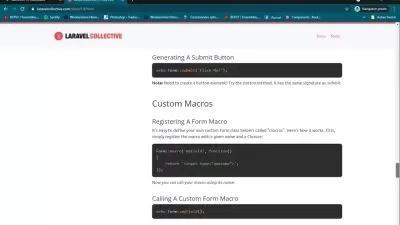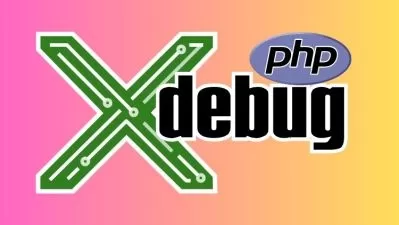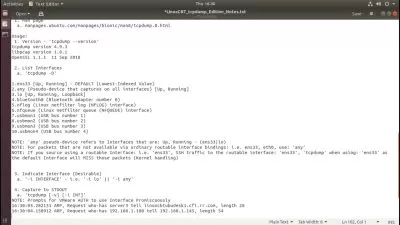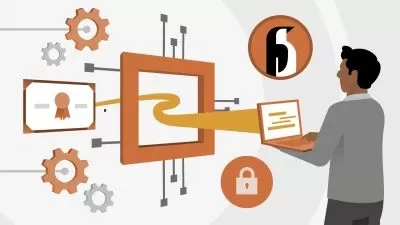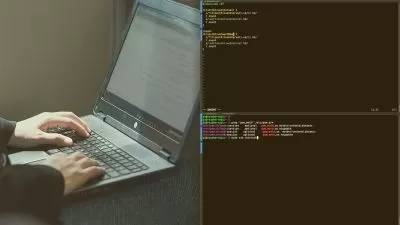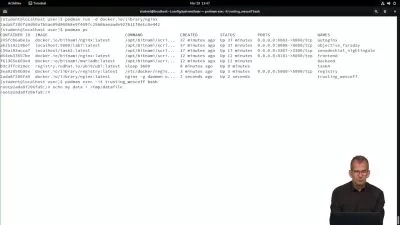Setup LAMP Stack on a Remote Cloud Server + PHP Foundations
YouAccel Training
6:41:39
Description
Cloud Computing Foundations | Instance Deployment | LAMP Stack Configuration | Database Deployment | PHP Basics
What You'll Learn?
- The benefits of cloud computing over traditional on-premises data centers.
- Foundations of Cloud Computing Service Models
- Setting up and navigating a Linode account
- Securing a Linode account with TFA
- Remote Server Administration via SSH
- Securely Authenticating to a Virtual Instance Remotely using SSH Key Pairs
- Foundations of the Linux Filesystem
- Linux Maintenance and Configuration
- Linux Use Accounts and System Security
- Foundations of Web Servers
- Foundations of DBMSes and Database Transaction Standards
- Foundations of SQL vs NoSQL Databases
- Installing and Configuring LAMP Stack on Ubuntu
- Testing MariaDB & PHP on Apache
- A Beginners Guide to Coding in PHP [Variables, Arrays, Functions, Loops, Conditional Statements, etc.)
Who is this for?
What You Need to Know?
More details
DescriptionIn this course you will learn the foundations of LAMP Stack and PHP. LAMP is an acronym for a popular group of software packages used to deliver high-performance web applications. LAMP is most commonly used to denote Linux, Apache, MySQL, and PHP. However, MySQL and PHP are often swapped for alternative software solutions such as MariaDB, and Python.
The course starts with a detailed overview on setting up and configuring an instance remotely using terminal and terminal emulators such as PuTTY. Here, students learn the foundations of Linux and various Linux distributions such as Ubuntu to securely power web servers. Students will learn various Linux maintenance and directory commands, coupled with user account configuration and disabling root user access. From there, we dive into the foundations of database management systems and explore the difference between SQL and NoSQL databases. We also explore the two main database transaction standards, including ACID and CAP theorem.
Once students have a solid understand on the foundations of cloud computing, we demonstrate how to securely install and configure LAMP Stack on Ubuntu. The installation will be complete with MariaDB and PHP, whereby students will learn to execute database commands directly from server-side PHP scripts. The course concludes with an entire section devoted to PHP development, where we explore just about every aspect of PHP syntax to code dynamic web content.
As you can see this course covers a tremendous bit of ground and we hope you’re just as excited about this course as we are, if so - hit that enroll button and let’s get started.
Who this course is for:
- Students interested in Cloud Computing and the Cloud Computing Service Models
- Students interested in Deploying and Configuring Virtual Instances using Cloud Services [IaaS]
- Students interested in learning the Foundations of Linux
- Students interested in learning the foundations of Web Servers and Databases
- Students interested in Installing and Configuring LAMP Stack on Ubuntu
- Students interested in learning how to code in PHP
In this course you will learn the foundations of LAMP Stack and PHP. LAMP is an acronym for a popular group of software packages used to deliver high-performance web applications. LAMP is most commonly used to denote Linux, Apache, MySQL, and PHP. However, MySQL and PHP are often swapped for alternative software solutions such as MariaDB, and Python.
The course starts with a detailed overview on setting up and configuring an instance remotely using terminal and terminal emulators such as PuTTY. Here, students learn the foundations of Linux and various Linux distributions such as Ubuntu to securely power web servers. Students will learn various Linux maintenance and directory commands, coupled with user account configuration and disabling root user access. From there, we dive into the foundations of database management systems and explore the difference between SQL and NoSQL databases. We also explore the two main database transaction standards, including ACID and CAP theorem.
Once students have a solid understand on the foundations of cloud computing, we demonstrate how to securely install and configure LAMP Stack on Ubuntu. The installation will be complete with MariaDB and PHP, whereby students will learn to execute database commands directly from server-side PHP scripts. The course concludes with an entire section devoted to PHP development, where we explore just about every aspect of PHP syntax to code dynamic web content.
As you can see this course covers a tremendous bit of ground and we hope you’re just as excited about this course as we are, if so - hit that enroll button and let’s get started.
Who this course is for:
- Students interested in Cloud Computing and the Cloud Computing Service Models
- Students interested in Deploying and Configuring Virtual Instances using Cloud Services [IaaS]
- Students interested in learning the Foundations of Linux
- Students interested in learning the foundations of Web Servers and Databases
- Students interested in Installing and Configuring LAMP Stack on Ubuntu
- Students interested in learning how to code in PHP
User Reviews
Rating
YouAccel Training
Instructor's Courses
Udemy
View courses Udemy- language english
- Training sessions 72
- duration 6:41:39
- Release Date 2022/11/22






